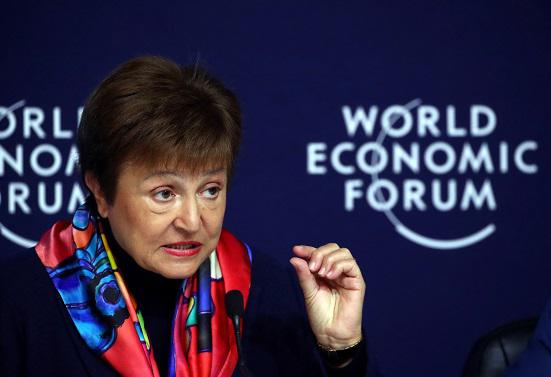In just the past few months, the "super typhoon" named COVID-19 has quickly spread around the world with more than 4 million infection cases, including about 275,900 deaths by May 9 morning and the numbers will surely continue to rise. Economic experts from Oxford Economics warned that this global pandemic could cost the world economy more than $1,000 billion due to declining labor productivity, stagnant production, and disrupted supply chains and serious decreases in investment, trade and tourism.
According to the US government's economic report announced on April 29, the Gross Domestic Product (GDP) of the world’s largest economy in the first quarter of 2020 fell sharply by 4.8%, as the COVID-19 epidemic forced businesses to shut down, limited investment and procurement activities. This is the first time US GDP has dropped since it recorded a 1.1% decline in the first quarter of 2014 and this is also the strongest quarter-on-quarter decrease since the fourth quarter of 2008, when the economy went down by 8.4%.
Meanwhile, the Eurozone economy fell by 3.8% in the first quarter of 2020 when business activities stalled because businesses had to close to prevent the spread of the coronavirus. This was the largest decline of the Eurozone economy since 1995.

In addition, the International Monetary Fund (IMF) predicts Asia's economic growth in 2020 will stop growing for the first time in 60 years, when the medical crisis caused by the COVID-19 pandemic resulted in “unprecedented” losses for the service sector of this region. Even the Chinese economy, which starts to resume economic activities much earlier than other countries, can only recover slowly, according to a Reuters poll. Previously, according to the National Bureau of Statistics of China, the country's economy in the first quarter of 2020 fell 6.8% compared to the same period in 2019, the first decline in nearly three decades, as disease prevention measures made economic activities come to a standstill.
Broken service activity is a major concern for governments in many countries, as millions of people are working for banks, retail companies and the hospitality industry, increasing the threat from the escalating unemployment rate to social stability. Analysts at BofA Global Research estimate that about 7% of the labor force (about 20.7 million people) in ASEAN-6 countries including Indonesia, Malaysia, Thailand, Singapore, the Philippines and Vietnam may lose their jobs due to the impact of the COVID-19. This scenario will also be a threat to economic recovery even when the epidemic is over.
The Organization for Economic Co-operation and Development (OECD) said that many countries’ imposition of socio-economic lockdowns to prevent the spread of the COVID-19 epidemic have dealt a blow on the world tourism, which is estimated to suffer a 45% fall this year.
Sharing the same view, the International Labor Organization (ILO) said that the COVID-19 is seriously affecting labor markets and industrial output worldwide, with tourism and auto manufacturing industries hardest hit. In particular, the epidemic has seriously impacted tourism - which contributed 3.2% of global GDP in 2018. If the related secondary industries were included, that number was up to 10.4% of global GDP in the same period. The European Union's (EU)’s tourism industry alone is estimated to lose about €1 billion ($1.1 billion) in revenue each month due to the COVID-19.

In addition, the ILO cited data showing that this sector accounted for 319 million jobs worldwide (equivalent to 10% of global jobs) in 2018. However, the figure may plunge by 45- 70% due to the effects of the pandemic.
Meanwhile, the International Air Transport Association (IATA) said that the aviation industry's revenue is expected to fall by about 55% to $314 billion in 2020 due to the impact of the epidemic. This is the worst forecast for the aviation industry, when only three weeks earlier, the industry's revenue is forecast to decrease by 44% (equivalent to 252 billion USD).
The World Bank (WB) said that developing countries are losing an important source of income, as global lockdown measures to prevent the spread of the virus have made remittances drop sharply. The WB estimates that global remittances are expected to decrease by about 20% in 2020, the biggest fall in recent history, because the shutdown of businesses caused global economic recession and job loss, making it impossible for overseas workers to send money home. Total remittances this year are projected to decline to $440 billion, from $554 billion in 2019.
UN Under-Secretary-General for Humanitarian Affairs and Emergency Relief Coordinator Mark Lowcock on April 28 said most experts agreed that the COVID-19 pandemic has not yet reached its "peak" in the poorest countries, but could reach this level in the next 3-6 months. He said about 700 million people, or 10% of the world population, are the most vulnerable, gathering in about 30-40 countries. The income of people in these countries will fall sharply as the disease spreads rapidly and governments impose restriction and lockdown measures.
According to Lowcock, to protect these people from the aforementioned decline in income, it may require about $60 billion, and for another $30 billion, people at risk of starvation may be provided with food and medical care measures amid COVID-19. He said that two-thirds of this $90 billion could come from international financial institutions such as the World Bank and the IMF, and the remaining one-third could come from a one-off increase in development assistance of governments.
Meanwhile, the EU on April 27 announced that it was mobilizing €350 million ($378 million USD) to support ASEAN members in the fight against COVID-19. EU Ambassador to ASEAN Igor Driesmans emphasized that ASEAN can "trust" in the EU in difficult times. The diplomat said the EU and ASEAN are two regional organisations boasting 42 years of "solidarity and cooperation" and the mobilization of €350 million to support ASEAN countries shows the EU's "friendship" with the people in the Southeast Asian region. Stressing the importance of global cooperation in addressing this crisis, Ambassador Driesmans affirmed that the world could only overcome the COVID-19 pandemic through international cooperation, solidarity and coordination.
To deal with the negative effects of the COVID-19, the US Treasury Department is detailing a plan on record $2,990 billion loans in the second quarter of 2020, including the first issuance of 20-year bonds since 1986. The department faces unprecedented credit demand as the government is spending trillions of dollars to cope with the impact of the epidemic, with millions of people losing jobs and a possible deep economic recession.
Earlier, the world's leading group of developed and emerging economies (G20) pledged to work together to reduce the economic damage caused by the COVID-19 to global tourism, one of the industries hardest hit by the disease with millions at risk of losing their jobs.
For their part, the leading officials of the IMF, the European Stabilization Mechanism (ESM), and other regional financial mechanisms agreed to coordinate actions to minimize the economic and financial impacts of the pandemic, especially to the most vulnerable countries and people. In a joint statement released at a videoconference, the officials said they agreed to coordinate in the implementation of joint financial activities to meet the needs of its members. According to this statement, unprecedented situations happening now require unprecedented responses. In addition to exchanging information on the needs of members, the agencies and mechanisms said they would seek to coordinate support in many different areas of the world.
Regarding enterprises, aircraft manufacturer Boeing (the US) on April 29 announced a series of cost-cutting measures after recording a loss of 641 million USD in the first quarter of 2020 due to the negative effects of the COVID-19 epidemic. Boeing CEO David Calhoun said the company intends to cut 10% of its workforce through a mechanism for employees to voluntarily quit. In addition, Boeing will also cut the production of key commercial aircraft, including 787 and 777.
(ASIA PACIFIC DAILY)
